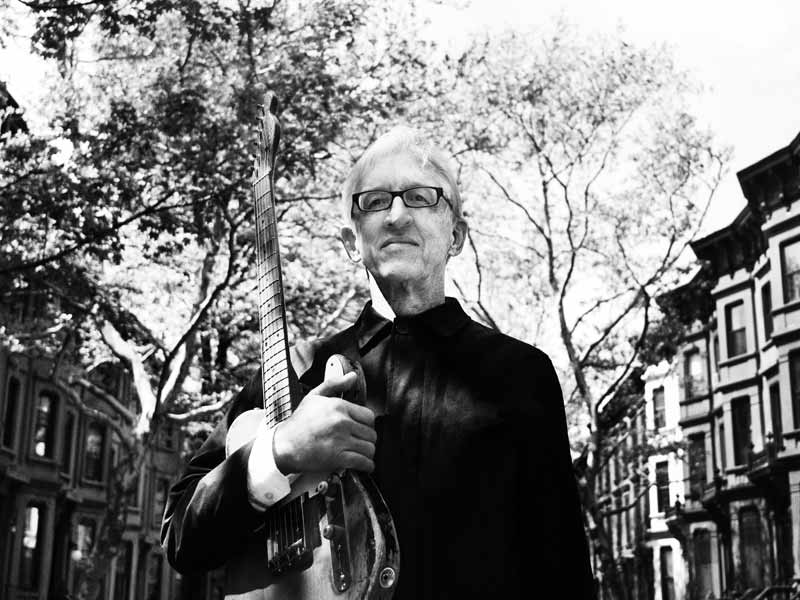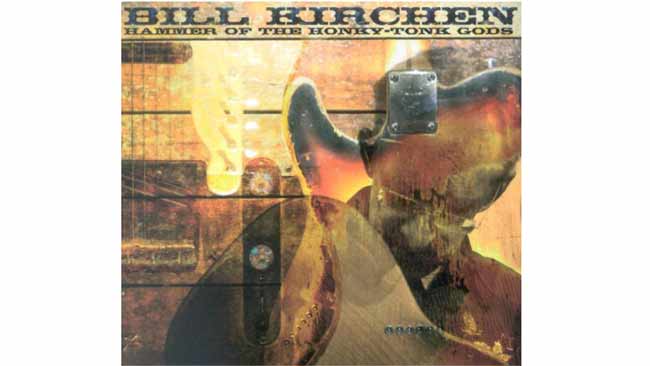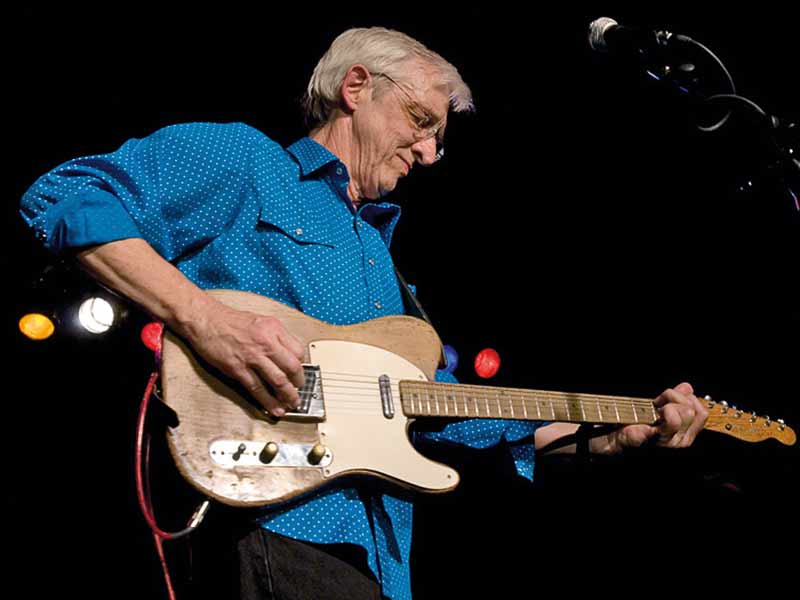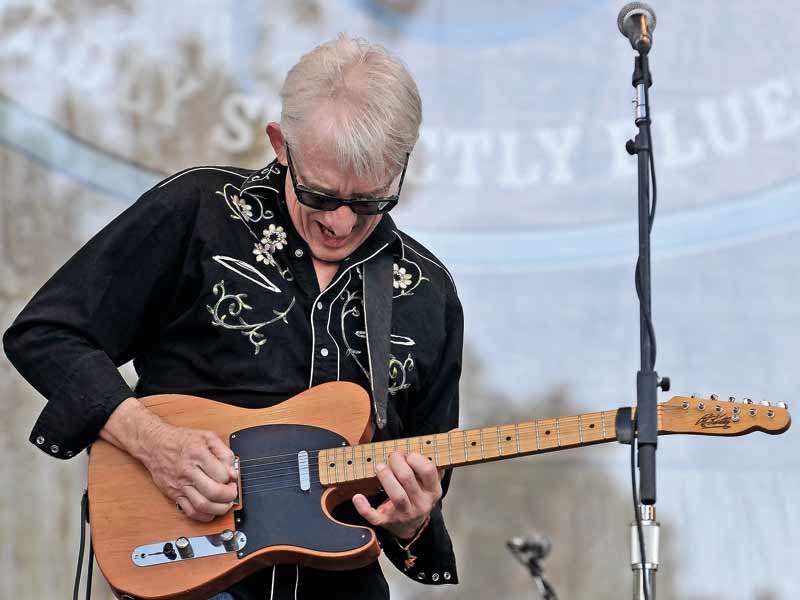Tele Titan Bill Kirchen on guitars, Brits and more
Texan Twangmaster in-depth

Texan twangmaster
A quick glance at the cover of Bill Kirchen's 2007 album, Hammer Of The Honky Tonk Gods, with its seriously road-worn Sunburst '59 Telecaster, suggests that the subject of his six-string affection certainly must have stories to tell.
"I tell people that I only keep the Telecaster in the guitar case so it won't be in contact with other people's instruments and muss them up!" he laughs over the phone from his home in Austin, Texas.

A staggeringly inventive player in the finest tradition of Telecaster wizards, Kirchen kicked off his career in 1967 with a bunch of misfits from Ann Arbor, Michigan calling themselves Commander Cody And The Lost Planet Airmen. "We were mining 40s boogie-woogie and hard blood and guts country from the 50s," he says, the band's inspiration being the rambunctious sounds of country renegades such as Ernest Tubb and Ray Price.
"I only keep the Telecaster in the guitar case so it won't be in contact with other people's instruments and muss them up!"
After several years playing around sleepy Ann Arbor, the band moved out to California, where The Byrds and Flying Burrito Brothers were already taking traditional country music and turning it on its head. And it was Bill Kirchen's steely Telecaster licks and tricks that eventually propelled Commander Cody And The Lost Planet Airmen into the Billboard charts in 1971, with their record Hot Rod Lincoln.
In the decades that followed, the list of Kirchen devotees with whom he's worked included Nick Lowe, Elvis Costello, Paul Carrack, Link Wray and just about every rockabilly guitarist on the block.

School days
As a kid, Bill grew up listening to country-blues players such as Son House and Skip James, but it was between 1965 and '67 that he received his 'crash course in country' with the Commander Cody band.
"It was a great era for the music," he says. "I'd been hearing bluegrass and the old country stuff going back to the 40s, but when I heard Merle Haggard and Buck Owens, I just tried to learn it all.
"Then I watched James Burton, Roy Nichols and Don Rich, loved their sound and realised those guys all played a Telecaster, so I thought, 'Right then – I'll be needing one.' I traded a gentleman an SG for mine, and it turned out to be the guitar I ended up playing for the next 45 years."
"I watched James Burton, Roy Nichols and Don Rich, loved their sound and realised those guys all played a Telecaster, so I thought, 'Right then – I'll be needing one.'"
After the Commander Cody band broke up, Bill began a decades long friendship with Nick Lowe, recording two albums with their band The Moonlighters before moving to Washington DC. "Someone even wrote a song called Washington's A Telecaster Town, and it was certainly true!
"I worked with Roy Buchanan and played in bands with Danny Gatton and Redd Volkaert. They were both such stunning players that it was a treat to just watch them. I had to be careful because sometimes I'd just be watching them and forget to play myself," he admits.
"Working with those people, there was no way you were going to compete; if you did you knew you were going to lose, so it was a relief in a way because I thought I'd just have to do what I do. And there's a lot of room in this world for different approaches, but sometimes I'd think, 'Oh my God. Why do I even call myself a guitar player?'"
That '59 Sound
These days Bill's prized 1959 Fender Telecaster stays in its case. "I wore out everything, acidic sweat from my hands wore the bridge ferrules until you could see the adjusting screws. I think it changed when I gave up drinking 30 years ago. I haven't worn out any bridge pieces since!"
On his upcoming tour Bill will probably be using a Tele-style guitar made by New York luthier Rick Kelly. Made of old pine reclaimed from demolition skips, the guitar has a huge neck and no truss rod. "Rick says the lack of truss rod produces a fatter tone, and I'm not one to argue with the guy, because it really does have something special.
"Unplugged, it has a tremendous resonance. His theory is that the truss rod leaves a hollow underneath the third and fourth strings, which affects the tone."

Brit Connection
For his last three albums, Bill has worked with a nucleus of British musicians including Nick Lowe, Geraint Watkins on keyboards and drummer Robert Trehern. It's unusual for a US musician so steeped in roots music.
"Working with touchy Englishmen?" he chuckles. "I've learned so much from Nick Lowe, I can't begin to tell you. He produced one of my albums and I think the world of him, value every minute I spend with him chatting or being on stage."
And although Kirchen has been dishing out those lightning-fast licks to Hot Rod Lincoln for more than 25 years, he's clear that he's much more than some revisionist. "Some people are great at recreating stuff, but I like to mix it all in," he says.
"Jeff Beck made that great Gene Vincent album Crazy Legs, fantastic, but I'm not sure I'd be the man for the job"
"Jeff Beck made that great Gene Vincent album Crazy Legs, fantastic, but I'm not sure I'd be the man for the job. We played with Gene on several shows, and I ended up on what turned out to be his last album.
"It was the last year of his life, and he'd just returned to the States from England. He was a very nice guy, but wasn't in the best of health, and a bit disconnected.
"We rehearsed in this place that just had a dirt floor, but he didn't care, he was just delighted to sing. But I don't believe the woman he was with was too impressed by our living situation!"
Bill's latest album, Seeds And Stems, is out now on Proper Records.